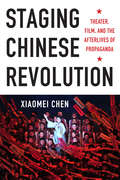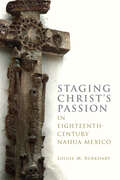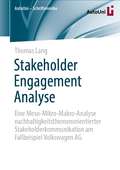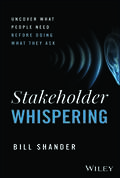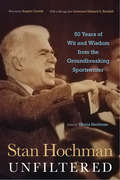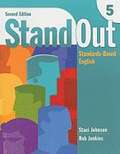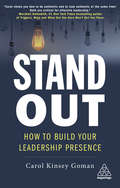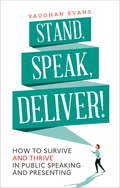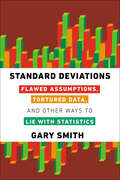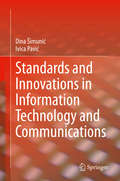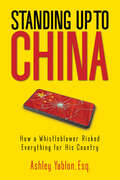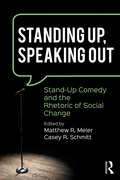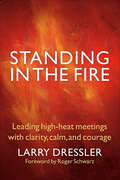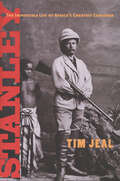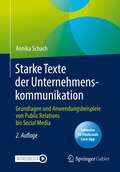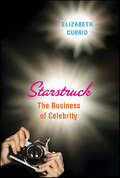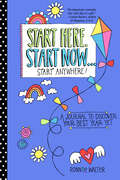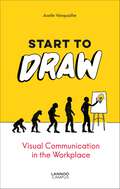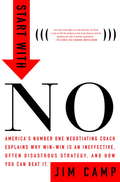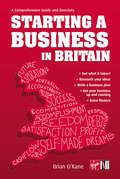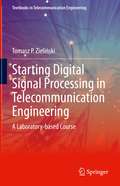- Table View
- List View
Staging Chinese Revolution: Theater, Film, and the Afterlives of Propaganda
by Xiaomei ChenStaging Chinese Revolution surveys fifty years of theatrical propaganda performances in China, revealing a dynamic, commercial capacity in works often dismissed as artifacts of censorship. Spanning the 1960s through the 2010s, Xiaomei Chen reads films, plays, operas, and television shows from an interdisciplinary and comparative perspective, demonstrating how, in a socialist state with "capitalist characteristics," propaganda performance turns biographies, memoirs, and war stories into mainstream ideological commodities, legitimizing the state and its right to rule. Analyzing propaganda performance also brings contradictions and inconsistencies to light that throw common understandings about propaganda's purpose into question.Chen focuses on revisionist histories that stage the lives of the "founding fathers" of the Communist Party, such as Chen Duxiu, Mao Zedong, and Deng Xiaoping, and the engaging mix of elite and ordinary characters that animate official propaganda in the private and public sphere. Taking the form of "personal" memories and representing star and youth culture and cyberspace, contemporary Chinese propaganda appeals through multiple perspectives, complicating relations among self, subject, agent, state building, and national identity. Chen treats Chinese performance as an extended form of political theater confronting critical issues of commemoration, nostalgia, state rituals, and contested history. It is through these reenactments that three generations of revolutionary leaders loom in extraordinary ways over Chinese politics and culture.
Staging Christ's Passion in Eighteenth-Century Nahua Mexico (IMS Monograph Series)
by Louise M. BurkhartStaging Christ’s Passion in Eighteenth-Century Nahua Mexico explores the Passion plays performed in Nahuatl (Aztec) by Indigenous Mexicans living under Spanish colonial occupation. Though sourced from European writings and devotional practices that emphasized the suffering of Christ and his mother, this Nahuatl theatrical tradition grounded the Passion story in the Indigenous corporate community. Passion plays had courted controversy in Europe since their twelfth-century origin, but in New Spain they faced Catholic authorities who questioned the spiritual and intellectual capacity of Indigenous people and, in the eighteenth century, sought to suppress these performances. Six surviving eighteenth-century scripts, variants of an original play possibly composed early in the seventeenth century, reveal how Nahuas passed along this model text while modifying it with new dialogue, characters, and stage techniques. Louise M. Burkhart explores the way Nahuas merged the Passion story with their language, cultural constructs, social norms, and religious practices while also responding to surveillance by Catholic churchmen. Analytical chapters trace significant themes through the six plays and key these to a composite play in English included in the volume. A cast with over fifty distinct roles acted out events extending from Palm Sunday to Christ’s death on the cross. One actor became a localized embodiment of Jesus through a process of investiture and mimesis that carried aspects of pre-Columbian materialized divinity into the later colonial period. The play told afar richer version of the Passion story than what later colonial Nahuas typically learned from their priests or catechists. And by assimilating Jesus to an Indigenous, or macehualli, identity, the players enacted a protest against colonial rule. The situation in eighteenth-century New Spain presents both a unique confrontation between Indigenous communities and Enlightenment era religious reformers and a new chapter in an age-old power game between popular practice and religious orthodoxy. By focusing on how Nahuas localized the universalizing narrative of Christ’s Passion, Staging Christ’s Passion in Eighteenth-Century Nahua Mexico offers an unusually in-depth view of religious life under colonial rule. Burkhart’s accompanying website also makes available transcriptions and translations of the six Nahuatl-language plays, four Spanish-language plays composed in response to the suppression of the Nahuatl practice, and related documentation, providing a valuable resource for anyone interested in consulting the original material. Comments restricted to single page plays composed in response to the suppression of the Nahuatl practice, and related documentation, providing a valuable resource for anyone interested in consulting the original material
Staging and Performing Translation
by Roger Baines Cristina Marinetti Manuela PerteghellaStaging and Performing Translation: Text and Theatre Practice explores the territory between translation theory and practice in contemporary theatre. Featuring contributions by academics from theatre and translation studies, as well as translators, directors, actors, dramaturges and literary managers, and an interview with playwright-translator-adapter Christopher Hampton, this collection attempts to delineate a new space for the discussion of translation in the theatre that is international, critical and scholarly while rooted in experience and understanding of theatre practice. The volume will be of interest to academics, lecturers and postgraduate students working and researching in the fields of translation studies, performance studies, and drama and theatre studies. The book offers innovative approaches to both the translation of play-texts and research methodologies, providing a useful pedagogical tool for the development of theatre translation modules or courses. The practical nature of the contributions will also be of interest to actor-training institutions as well as theatre practitioners and cultural promoters.
Stakeholder Engagement Analyse: Eine Meso-Mikro-Makro-Analyse nachhaltigkeitsthemenorientierter Stakeholderkommunikation am Fallbeispiel Volkswagen AG (AutoUni – Schriftenreihe #153)
by Thomas LangAm Fallbeispiel der Volkswagen AG Nachhaltigkeit werden erstmalig auf der Grundlage eines sozialtheoretisch inspirierten Mehrebenen-Analysemodells die Wahrnehmungen und Zuschreibungen von Unternehmensverantwortung (Corporate Responsibility) durch 33 nichtmarktliche Stakeholder aus den drei Bezugsgruppen Wissenschaft und Forschung, Politik und Verbände sowie NGOs untersucht. Die qualitative Fallstudie beschreibt kenntnisreich und detailliert, wie der Volkswagen-Konzern mit seinen wesentlichen, nichtmarktlichen Stakeholdergruppen interagiert. Den theoretischen Bezugsrahmen der Arbeit bilden Anthony Giddens Theorie der Strukturation, Edward R. Freemans Stakeholder-Management- und Amartya Sens Capability-Ansatz.
Stakeholder Whispering: Uncover What People Need Before Doing What They Ask
by Bill ShanderLearn to uncover what your managers, clients, customers and other stakeholders need before doing what they ask People don't know what they need. The wants we communicate to others are shaped by our subconscious and the familiar, and limited by what we think is possible. But they don't always reflect our actual needs. In Stakeholder Whispering: Uncover What People Need Before Doing What They Ask, author Bill Shander demonstrates how to get from your stakeholders' "order"—what they're asking for—to what they really need. You'll learn how to uncover the needs and desires of your clients, colleagues, bosses, customers, and other stakeholders based on what they ask for and how they ask for it, and how to deliver products and services that meet those needs. Inside the book: Help your stakeholders accomplish their goals and make the best decisions possible by helping them see what they really need Shift from executing on tactics driven by others' commands, to strategic action driven by underlying needs Transform your organization from one filled with "order-takers" into one where people work collaboratively to meet goal-oriented requirements Perfect for managers, executives, and other business leaders, Stakeholder Whispering will also earn a place on the bookshelves of entrepreneurs, founders, designers, product and project managers, UX experts, data and business analysts, and anyone else hoping to better meet the expectations of their coworkers, managers, clients, and customers.
Stan Hochman Unfiltered: 50 Years of Wit and Wisdom from the Groundbreaking Sportswriter
by Gloria HochmanThe late Philadelphia Daily News sportswriter Stan Hochman was known for his many zingers, such as “Harry Litwack, the stoic Temple coach, stalks the sidelines like a blind man at a nudist colony.” As a reporter, he was more interested in how athletes felt, what their values were, how they lived their lives, or what made them tick than he was about how many runs they scored or punches they landed. In Stan Hochman Unfiltered, his wife Gloria collects nearly 100 of his best columns from the Daily News about baseball, horse racing, boxing, football, hockey, and basketball (both college and pro), as well as food, films, and even Liz Taylor. Each section is introduced by a friend or colleague, including Garry Maddox, Bernie Parent, Larry Merchant, and Ray Didinger, among others. Hochman penned a candid, cantankerous column about whether Pete Rose belongs in the Baseball Hall of Fame; wrote a graphic account of the Muhammad Ali and Joe Frazier fight of the century; and skewered Norman “Bottom Line” Braman, the one-time owner of the Eagles. He also wrote human-interest stories, including features about the importance of kids with special needs playing sports. In addition to being a beloved writer, Hochman was also known for his stint on WIP’s radio as the Grand Imperial Poobah, where he would settle callers’ most pressing debates. Hochman long earned the respect and admiration of his subjects, peers, and readers throughout his career, and Stan Hochman Unfiltered is a testament to his enduring legacy.
Stand Out 5: Standards Based English
by Rob Jenkins Staci JohnsonBuilt from the standards necessary for adult English learners, the second edition of Stand Out gives students the foundation and tools they need to develop confidence and become independent, lifelong learners.
Stand Out: How to Build Your Leadership Presence
by Carol Kinsey GomanLeadership presence doesn't come with a title or promotion - good leaders develop presence over time. Leadership presence is how you show up and contribute to meetings, and whether or not you can project confidence and poise under pressure - do you have already have a presence?Leadership presence is that elusive "we know it when we see it" quality. You may have a leadership title or tremendous leadership potential, but that alone does not give you presence. Being perceived as a leader when interacting with customers, peers or executives is the essence of leadership presence. Your leadership presence is evaluated by others based on how you show up and contribute in meetings, how well you project confidence and keep poise under pressure and whether you can engage others in ways that are authentic, empathetic and motivational. Stand Out walks you through achieving this presence so you get that next promotion and give your career that extra boost. Stand Out explains that the goal of leadership presence is to align other people's impression of you with your best authentic self. Body language expert and executive coach Carol Kinsey Goman teaches the five essential skills needed: composure, connection, confidence, credibility and charisma. She also explains how leadership presence is different for women, how nonverbal communication builds or destroys presence and why self-promotion is essential. This book shows aspiring and experienced leaders alike how to more positively influence the impression they make on others.
Stand Up For Yourself Without Getting Fired: Resolve Workplace Crises Before You Quit, Get Axed, or Sue the Bastards
by Donna BallmanTake a deep breath and learn how to deal with a bad work situation: “Like having an employment attorney on call. . . . It’s exactly what employees need.” —Alison Green, author of Ask A ManagerUSA Best Book Award WinnerHate your job? Ready to quit? Facing a layoff before you even have a chance to quit? Is your boss is a flaming jerk? Think you might have a lawsuit? If any of these scenarios apply to you, you are facing a crucial career moment—and mistakes and misinformation will cost you dearly.In Stand Up for Yourself Without Getting Fired, celebrated attorney Donna Ballman provides winning answers to these and many more tough questions, such as:I think they’re getting ready to lay me off. What can I do?My boss is creating a hostile environment. Can I sue?What does it mean if I sign a paper saying I’m an independent contractor and not an employee?Am I exempt from overtime?Whether you’re a recent college grad or an almost-retiree, newly employed or laid off after twenty years; gay or straight; single or married with kids; janitor or CEO . . . Stand Up for Yourself Without Getting Fired will give you the specific and relevant advice you need to face any career-threatening situation . . . and come out ahead.
Stand, Speak, Deliver!: How to survive and thrive in public speaking and presenting
by Vaughan EvansPublic speaking and presenting rank in the top ten of people's greatest fears. Yet being able to speak coherently and persuasively in a speech, seminar or meeting room is important when progressing our careers and living our lives to the fullest.In this book, 37 pithy, lively and witty mini-speeches tell us how to construct and deliver a speech or presentation. Each example speech follows a simple, perfect structure which will soon become imprinted in your mind. Each focuses on one facet of speaking and gives you the very essentials picked up by the author over 25 years of experience.And each speech will entertain as much as inform you.Stand, Speak, Deliver! will enable you to learn how to use your eyes, vary your voice and move your body. It will also look at how to inform, entertain, humour, persuade, motivate or inspire the audience; how to present, to colleagues or clients; how to introduce a speaker; and how to wow as best man. And you will discover the ultimate secret...!Read the book, enjoy it and you will survive as a speaker. Follow it and you will thrive!
Stand, Speak, Deliver!: How to survive and thrive in public speaking and presenting
by Vaughan EvansPublic speaking and presenting rank in the top ten of people's greatest fears. Yet being able to speak coherently and persuasively in a speech, seminar or meeting room is important when progressing our careers and living our lives to the fullest.In this book, 37 short, lively and pithy speeches tell us how to construct and deliver a speech or presentation. Each example speech follows a simple, perfect structure which will soon become imprinted in your mind. Each focuses on one facet of speaking and gives you the very essentials picked up by the author over 25 years of experience.Stand, Speak, Deliver! will enable you to learn how to use your eyes, vary your voice and move your body. It will also look at how to inform, entertain, humour, persuade, motivate or inspire the audience; how to present, to colleagues or clients; how to introduce a speaker; and how to wow as best man. And you will discover the ultimate secret...!Read the book and you will survive as a speaker. Follow it and you will thrive!e!
Standard Deviations: Flawed Assumptions, Tortured Data, and Other Ways to Lie with Statistics
by Gary SmithHow statistical data is used, misused, and abused every day to fool us: “A very entertaining book about a very serious problem.” —Robert J. Shiller, winner of the Nobel Prize in Economics and author of Irrational ExuberanceDid you know that baseball players whose names begin with “D” are more likely to die young? That Asian Americans are most susceptible to heart attacks on the fourth day of the month? That drinking a full pot of coffee every morning adds years to your life, but one cup a day increases your pancreatic cancer risk? These “facts” have been argued with a straight face by credentialed researchers and backed up with reams of data and convincing statistics. As Nobel Prize–winning economist Ronald Coase cynically observed, “If you torture data long enough, it will confess.” Lying with statistics is a time-honored con. In Standard Deviations, economics professor Gary Smith walks us through the various tricks and traps that people use to back up their own crackpot theories. Sometimes, the unscrupulous deliberately try to mislead us. Other times, the well-intentioned are blissfully unaware of the mischief they are committing. Today, data is so plentiful that researchers spend precious little time distinguishing between good, meaningful indicators and total rubbish. Not only do others use data to fool us, we fool ourselves. Drawing on breakthrough research in behavioral economics and using clear examples, Standard Deviations demystifies the science behind statistics and makes it easy to spot the fraud all around us.“An entertaining primer . . . packed with figures, tables, graphs and ludicrous examples from people who know better (academics, scientists) and those who don’t (political candidates, advertisers).” —Kirkus Reviews (starred review)
Standards and Innovations in Information Technology and Communications
by Dina Šimunić Ivica PavićThis book gives a thorough explanation of standardization, its processes, its life cycle, and its related organization on a national, regional and global level. The book provides readers with an insight in the interaction cycle between standardization organizations, government, industry, and consumers. The readers can gain a clear insight to standardization and innovation process, standards, and innovations life-cycle and the related organizations with all presented material in the field of information and communications technologies. The book introduces the reader to understand perpetual play of standards and innovation cycle, as the basis for the modern world.
Standing Up to China: How a Whistleblower Risked Everything for His Country
by Ashley YablonWhat would you do if your ambitious career suddenly transformed into a deadly game of international espionage? A true-life thriller equal to that of a heart-stopping John Grisham novel, Ashley Yablon's story takes readers into the dark crevices of deceit and corporate greed of one of the world's most powerful Chinese telecom giants. As the freshly minted General Counsel for telecom company ZTE, Yablon uncovers an illegal scheme selling billions of dollars' worth of surveillance equipment to embargoed countries. If left unchecked, these transactions could threaten the security of the United States at the highest levels. Instead of turning a blind eye, Yablon risks everything, including his life and career, to uphold justice - leading him down a course of personal and professional destruction. In this modern-day story of David and Goliath, Yablon goes head-to-head with some of the most dangerous and powerful Chinese crime bosses in the world.
Standing Up, Speaking Out: Stand-Up Comedy and the Rhetoric of Social Change
by Matthew R. Meier Casey R. SchmittIn recent decades, some of the most celebrated and culturally influential American oratorical performances have come not from political leaders or religious visionaries, but from stand-up comics. Even though comedy and satire have been addressed by rhetorical scholarship in recent decades, little attention has been paid to stand-up. This collection is an attempt to further cultivate the growing conversation about stand-up comedy from the perspective of the rhetorical tradition. It brings together literatures from rhetorical, cultural, and humor studies to provide a unique exploration of stand-up comedy that both argues on behalf of the form’s capacity for social change and attempts to draw attention to a series of otherwise unrecognized rhetors who have made significant contributions to public culture through comedy.
Standing in the Fire: Leading high-heat meetings with clarity, calm, and courage
by Larry DresslerFrom an accomplished international facilitator, &“a must-read for anyone who must navigate through a sea of emotionally charged issues&” (Russell Coff, Associate Professor of Organization and Management, Emory University). Experienced facilitators, OD consultants, coaches, and organizational leaders increasingly find themselves standing in the fire—working in situations where group and community members are polarized, angry, fearful, and confused. Facilitator Larry Dressler has come to believe that simply picking up yet another method or technique won&’t help in situations like these. What has a truly transformational impact is what he calls the &“facilitators presence.&” Cultivating an ability to access a compassionate presence that people experience as open, authentic, and clear in intention during the most difficult situations moves facilitators from being competent professionals to being on a path toward self-mastery. In this helpful guide, he explains how to make that transformation happen.
Stanley: The Impossible Life of Africa's Greatest Explorer
by Tim JealNational Book Critics Circle Award Winner: This revelatory biography of the famed adventurer is “commanding, definitive . . . an unalloyed triumph” (The Washington Post Book World).A New York Times Notable Book of the YearHenry Morton Stanley, so the tale goes, was a cruel imperialist who connived with King Leopold II of Belgium in horrific crimes against the people of the Congo. He also conducted the most legendary celebrity interview in history, opening with, “Dr. Livingstone, I presume?” But these perceptions are not quite true, Tim Jeal shows in this grand and colorful biography. With unprecedented access to previously closed Stanley family archives, Jeal reveals the amazing extent to which Stanley’s public career and intimate life have been misunderstood and undervalued. Jeal recovers the reality of Stanley’s life—a life of almost impossible extremes—in this moving story of tragedy, adventure, disappointment, and success.Few have started life as disadvantaged as Stanley. Rejected by both parents and consigned to a Welsh workhouse, he emigrated to America as a penniless eighteen-year-old. Jeal vividly re-creates Stanley’s rise as a reporter, his friendships and romantic relationships, and his life-changing decision to assume an American identity. Stanley’s epic but unfairly forgotten African journeys are thrillingly described, establishing the explorer as the greatest to set foot on the continent. Few biographies can claim so thoroughly to reappraise a reputation; few portray a more extraordinary historical figure.“There have been many biographies of Stanley, but Jeal’s is the most felicitous, the best informed, the most complete and readable.” —Paul Theroux, The New York Times Book Review
Starke Texte der Unternehmenskommunikation: Grundlagen und Anwendungsbeispiele von Public Relations bis Social Media
by Annika SchachDieses Grundlagenwerk zu Texten in Public Relations, Marketing und Werbung bietet einen fundierten und praxisnahen Überblick für Ausbildung, Studium und Berufspraxis.Schreibkompetenz ist in der Kommunikationsbranche wichtiger denn je – aufgrund von unterschiedlichsten digitalen Formatentwicklungen und der wachsenden Aufmerksamkeit für zielgruppengerechte und angemessene Sprache in der Öffentlichkeit. Dazu benötigt es Wissen über zeitgemäße Kommunikation sowie spezifische Kenntnisse über einzelne Textsorten, Formate und Kanäle.Im ersten Buchteil thematisiert die Autorin aktuelle Entwicklungen in Medien und Gesellschaft und beschreibt ihre grundlegenden Auswirkungen auf die Schreibarbeit. Im zweiten Teil werden unterschiedliche Textsorten anhand von Definitionen, Inhalten und Aufbau, sprachlichen Merkmalen und konkreten Praxisbeispielen vorgestellt. Neu in die 2. Auflage aufgenommen wurden die Themen Gendersensibilität und Barrierefreiheit sowie Kommunikation in Audio- und Videoformaten.Ein unverzichtbarer Leitfaden für alle, die heute mit starken Texten professionelle Unternehmenskommunikation betreiben möchten.Für Leser kostenlos: Testen Sie Ihr Wissen mit Fragen und Antworten zum Buch in der Springer-Nature-Flashcards-App.
Starmaker: Life As a Hollywood Publicist with Farrah, The Rat Pack and 600 More Stars Who Fired Me
by Jay BernsteinThis memoir by the legendary publicist offers &“an intimate glimpse into the best and the worst of the golden age of Hollywood&” (Stacy Keach, Golden Globe Award–nominated actor). Jay Bernstein, an entertainment industry fixture who helped launch the careers of celebrities including Farrah Fawcett and Suzanne Somers, was famed for his sense of showmanship, his outrageous style, and the publicity stunts he engineered to get attention for his clients. Starmaker tells his story, from his childhood in Oklahoma City and his first job in a Hollywood mailroom to the ownership of his own public relations firm and his work as a television producer. In addition to a behind-the-scenes look at several generations of show business and hard-hitting insights about how the industry changed over the decades, Bernstein also describes the relationships he had with stars and his notorious techniques, such as paying women to throw hotel keys at Tom Jones, having Entertainment Tonight host Mary Hart&’s legs insured for one million dollars, and getting married underwater for an episode of Lifestyles of the Rich and Famous. With the wisdom of experience and a sense of humor, this autobiography shares the intimate details of a fascinating Hollywood life.
Starstruck: The Business of Celebrity
by Elizabeth CurridThe author of The Warhol Economy asks how does celebrity work and why do we care about some people more than others? What is celebrity? Why is it such a dominant force in our culture? And why do we seem preoccupied with it now more than ever? Celebrity—our collective fascination with particular people—is everywhere and takes many forms, from the sports star, notorious Wall Street tycoon, or film icon, to the hometown quarterback, YouTube sensation, or friend who compulsively documents his life on the Internet. We follow with rapt attention all the minute details of stars' lives: their romances, their spending habits, even how they drink their coffee. For those anointed, celebrity can translate into big business and top social status, but why do some attain stardom while millions of others do not? Why are we simply more interested in certain people? Elizabeth Currid-Halkett presents the first rigorous exploration of celebrity, arguing that our desire to "celebrate" some people and not others has profound implications, elevating social statuses, making or breaking careers and companies, and generating astronomical dividends. Tracing the phenomenon from the art world to tabletop gaming conventions to the film industry, Currid-Halkett looks at celebrity as an expression of economics, geography (both real and virtual), and networking strategies.Starstruck brings together extensive statistical research and analysis, along with interviews with top agents and publicists, YouTube executives, major art dealers and gallery directors, Bollywood players, and sports experts. Laying out the enormous impact of the celebrity industry and identifying the patterns by which individuals become stars, Currid-Halkett successfully makes the argument that celebrity is an important social phenomenon and a driving force in the worldwide economy.
Start Here, Start Now . . . Start Anywhere: A Fill-in Journal to Discover Your Best Year Yet!
by Ronnie WalterMindful Journaling and Self-Care Strategies for a Better YouPart coloring book, part guided journal Start Here, Start Now...Start Anywhere! is specially made to help you accomplish your ambitions, meet your goals, and enjoy moments of mindfulness.Personal growth starts here. With not enough time in the day, it’s hard to find room for self-reflection and short-term goals. From best-selling author and illustrator Ronnie Walter comes an eye-catching, guided, fill-in journal that will produce some clarity on your goals.When everyday life turns into a meaningful life. Filled with fun lists and journal ideas, Start Here, Start Now...Start Anywhere! is an easy-to-use guide with all the benefits of journal writing. It’s undated, so you don’t need an excuse to start next week. It also includes lined pages to help capture thoughts or save daily reflections. And with lots of illustrations and coloring pages, its therapeutic potential helps reduce anxiety and make room for mindfulness. Inside, find journal prompts like:People come to me to help them…What could you talk for hours about?People tell me I’m…What are some dreams you’ve had in the past? (even when you were very young)If you enjoyed Ronnie’s latest journal, Gratitude with Attitude, or books like Start Where You Are, Practice You, or I Am Here Now, then you’ll love Start Here, Start Now...Start Anywhere!
Start to Draw: Visual Communication in the Workplace
by Axelle VanquaillieWhether you want to convince your co-workers of your ideas in important meetings, or would do anything to have your presentations remembered forever, or want to stand out as a coach and have your ideas last forever in a company, you need to be able to visualize your ideas. Start to Draw is a hands-on guide discussing the positive aspects of drawing and visualizing your ideas in your work environment. It is an accessible, richly illustrated and bite-size book providing insight into why drawing works, how you can have a great impact on your own (and others') professional work, and how you can end up with a more creative approach to your job.
Start with No: The Negotiating Tools That the Pros Don't Want You to Know
by Jim CampThink win-win is the best way to make the deal? Think again. It's the worst possible way to get the best deal. This is the dirty little secret of corporate America.For years now, win-win has been the paradigm for business negotiation--the "fair" way for all concerned. But don't believe it. Today, win-win is just the seductive mantra used by the toughest negotiators to get the other side to compromise unnecessarily, early, and often. Have you ever heard someone on the other side of the table say, "Let's team up on this, partner"? It all sounds so good, but these negotiators take their naive "partners" to the cleaners, deal after deal. Start with No shows you how they accomplish this. It shows you how such negotiations end up as win-lose. It exposes the scam for what it really is. And it guarantees that you'll never be a victim again.Win-win plays to your emotions. It takes advantage of your instinct and desire to make the deal. Start with No teaches you how to understand and control these emotions. It teaches you how to ignore the siren call of the final result, which you can't really control, and how to focus instead on the activities and behavior that you can and must control in order to negotiate with the pros.Start with No introduces a system of decision-based negotiation. Never again will you be out there on a wing and a prayer. Never again will you feel out of control. Never again will you compromise unnecessarily. Never again will you lose a negotiation.The best negotiators:* aren't interested in "yes"--they prefer "no" * never, ever rush to close, but always let the other side feel comfortable and secure* are never needy; they take advantage of the other party's neediness* create a "blank slate" to ensure they ask questions and listen to the answers, to make sure they have no assumptions and expectations* always have a mission and purpose that guides their decisions* don't send so much as an e-mail without an agenda for what they want to accomplish* know the four "budgets" for themselves and for the other side: time, energy, money, and emotion* never waste time with people who don't really make the decision. Start with No offers a contrarian, counterintuitive system for negotiating any kind of deal in any kind of situation--the purchase of a new house, a multimillion-dollar business deal, or where to take the kids for dinner. It is full of dozens of business as well as personal stories illustrating each point of the system. It will change your life as a negotiator. If you put to good use the principles and practices revealed here, you will become an immeasurably better negotiator.
Starting A Business In Britain: A Comprehensive Guide and Directory
by Brian O'KaneThousands of new businesses are set up each year in Britain, it is a breeding ground for new companies and entrepreneurs - consider the drinks company Innocent, Yo! Sushi or The Iron Bed Company. This guide will help readers increase their chances of emulating these companies' success.• Deciding if you have what it takes• Researching an idea• Writing a business plan• Raising finance• Getting your business up and runningThis revised and updated edition, including a comprehensive directory of organisations and sources to help you on your way, is indispensable for anyone wishing to branch out on their own
Starting Digital Signal Processing in Telecommunication Engineering: A Laboratory-based Course (Textbooks in Telecommunication Engineering)
by Tomasz P. ZielińskiThis hands-on, laboratory driven textbook helps readers understand principles of digital signal processing (DSP) and basics of software-based digital communication, particularly software-defined networks (SDN) and software-defined radio (SDR). In the book only the most important concepts are presented. Each book chapter is an introduction to computer laboratory and is accompanied by complete laboratory exercises and ready-to-go Matlab programs with figures and comments (available at the book webpage and running also in GNU Octave 5.2 with free software packages), showing all or most details of relevant algorithms. Students are tasked to understand programs, modify them, and apply presented concepts to recorded real RF signal or simulated received signals, with modelled transmission condition and hardware imperfections. Teaching is done by showing examples and their modifications to different real-world telecommunication-like applications. The book consists of three parts: introduction to DSP (spectral analysis and digital filtering), introduction to DSP advanced topics (multi-rate, adaptive, model-based and multimedia - speech, audio, video - signal analysis and processing) and introduction to software-defined modern telecommunication systems (SDR technology, analog and digital modulations, single- and multi-carrier systems, channel estimation and correction as well as synchronization issues).Many real signals are processed in the book, in the first part – mainly speech and audio, while in the second part – mainly RF recordings taken from RTL-SDR USB stick and ADALM-PLUTO module, for example captured IQ data of VOR avionics signal, classical FM radio with RDS, digital DAB/DAB+ radio and 4G-LTE digital telephony. Additionally, modelling and simulation of some transmission scenarios are tested in software in the book, in particular TETRA, ADSL and 5G signals.Provides an introduction to digital signal processing and software-based digital communication;Presents a transition from digital signal processing to software-defined telecommunication;Features a suite of pedagogical materials including a laboratory test-bed and computer exercises/experiments.
